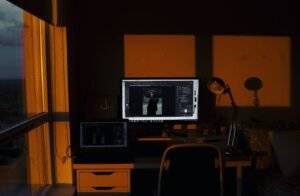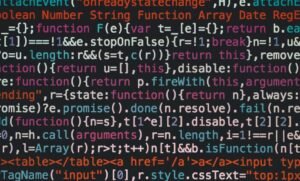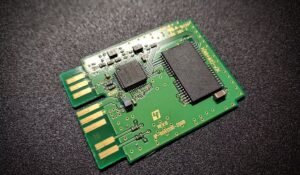AI Replace Singer Voice
Artificial Intelligence (AI) is revolutionizing the music industry, and one of its latest achievements is the ability to replace a singer’s voice. With advancements in AI technology, it is becoming possible to use AI algorithms and voice synthesis to produce music that sounds just like a specific singer, both in terms of tone and style.
Key Takeaways
- AI technology can now replace a singer’s voice.
- Voice synthesis algorithms produce music that mimics a specific singer’s voice.
- AI-generated music can cross genre boundaries.
- Artists can use AI to collaborate with deceased singers.
One of the remarkable aspects of AI voice synthesis is its ability to capture the nuances and subtleties of a singer’s voice. By analyzing extensive vocal data from a particular artist, the AI algorithm can learn and reproduce their singing style, vocal range, and unique timbre. *This technology allows for the creation of highly realistic imitations of famous singers, offering endless possibilities for the music industry.
This has several implications for both artists and listeners. Firstly, it enables artists who have lost their singing abilities due to illness or other reasons to continue creating new music by using AI-generated vocals. Secondly, collaborations between living artists and deceased singers become possible, as AI can recreate the voice of deceased musicians. Imagine a duet between an iconic singer from the past and a current artist, made possible by AI.
How AI Replaces Singer Voice
AI replaces a singer’s voice by utilizing deep learning techniques. The AI algorithm trains on a vast amount of audio data from the target singer, such as studio recordings, live performances, and interviews. The system then analyzes this vocal data, extracting key features, such as pitch, tone, vibrato, and emphasis patterns.
Through machine learning, the AI model learns to identify and reproduce these vocal characteristics, allowing it to generate new singing voices that closely resemble the original singer. *The AI model essentially becomes an expert in imitating the singing style of the artist it was trained on.
Applications and Impact
The ability to replace singer voices using AI opens up numerous possibilities and has a profound impact on the music industry. Here are a few notable applications:
- Cross-genre collaborations: AI-generated vocals allow artists to experiment with different music genres without the need for a singer to adapt their style.
- Remixing and reinterpretations: Existing songs can be given a fresh interpretation by using AI to replace the original vocals, giving them a unique sound.
- Posthumous releases: Deceased artists can “release” new music by collaborating with AI systems, enabling their legacies to live on.
| Benefits of AI Voice Synthesis | Limitations of AI Voice Synthesis |
|---|---|
|
|
While AI voice synthesis has the potential to revolutionize the music industry and provide fresh opportunities for artists, there are also limitations to consider. AI-generated vocals may lack the emotional depth and nuances present in human performances, preventing them from fully replicating the human singing experience. Additionally, creating accurate imitations requires a vast amount of training data, and capturing the artist’s improvisations and spontaneous vocalizations can be challenging.
Future Developments
The field of AI in music is continuously evolving, and advancements in voice synthesis technology will undoubtedly continue to unfold. AI algorithms are likely to become more sophisticated, enabling them to capture and reproduce even more intricate details of a singer’s voice.
*As AI voice synthesis evolves, we may witness an increasing acceptance of AI-generated music and collaborations with virtual singers. With the potential to recreate iconic voices from the past and open up new creative possibilities, AI’s role in the music industry is bound to expand.
| Advantages of AI Voice Synthesis | Disadvantages of AI Voice Synthesis |
|---|---|
|
|
In conclusion, the remarkable progress in AI voice synthesis has introduced a new era for the music industry. With AI’s ability to replace a singer’s voice, the boundaries of what is possible in music production and collaboration are expanding. While there are limitations and ethical considerations to address, AI-generated music is poised to play an increasingly significant role in shaping the future of the industry.
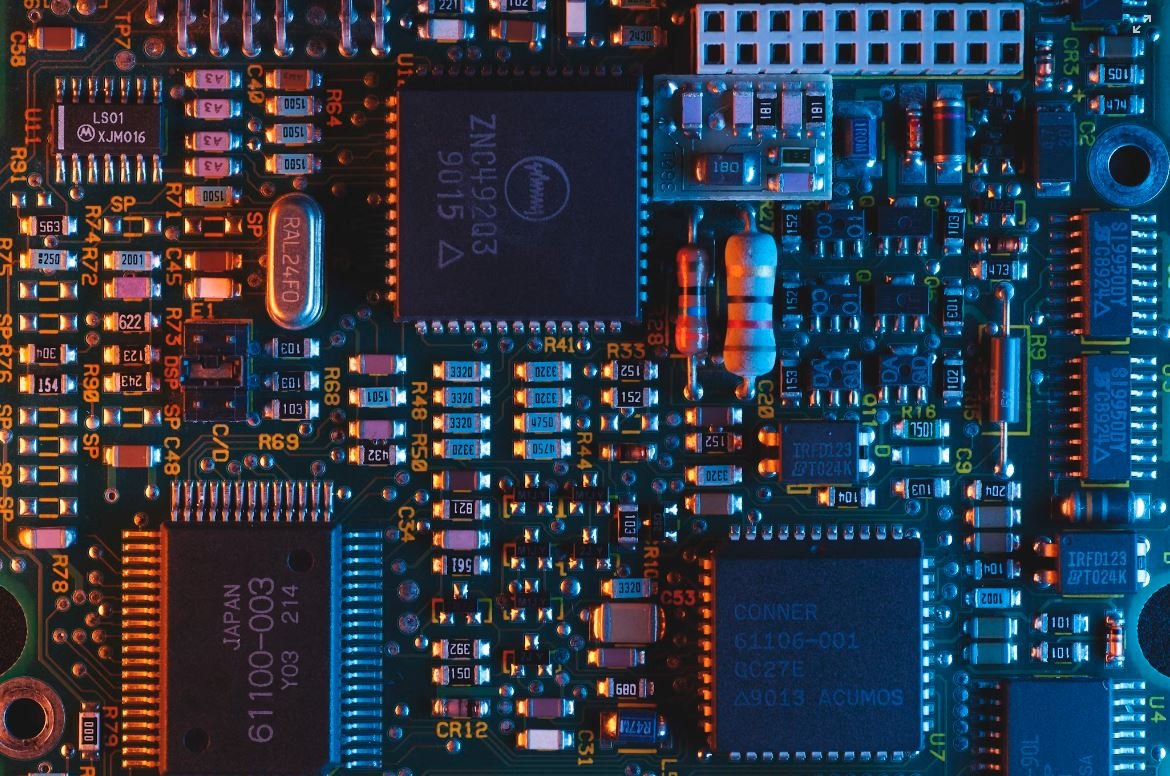
Common Misconceptions
Misconception 1: AI will completely replace human singers
One common misconception about AI replacing singer voice is that it will completely eliminate the need for human singers. However, this is not the case. While AI technology has made significant advancements, it still cannot fully replicate the creative and emotional aspects of a human singer’s voice.
- AI technology lacks human emotions and expression.
- Human singers bring unique interpretations and nuances to their performances.
- Machine learning algorithms can only imitate existing singing styles, limiting their originality.
Misconception 2: AI will render professional singers obsolete
Another misconception is that AI will make professional singers obsolete. However, professional singers possess a range of skills and abilities that AI cannot replicate. While AI-generated voices can certainly mimic the sound of a singer, they lack the stage presence, charisma, and adaptability that professional singers bring to live performances.
- Professional singers have the ability to connect with audiences on an emotional level.
- They can improvise and adjust their performances based on crowd reactions.
- AI-generated voices cannot match the raw talent and training of professional singers.
Misconception 3: AI-generated voices are indistinguishable from real singers
There is a misconception that AI-generated voices are indistinguishable from those of real singers. While AI technology has made impressive strides in generating realistic voices, careful listeners and trained musicians can often identify the subtle differences between AI-generated voices and real singers.
- Real singers have unique vocal qualities that cannot be fully replicated by AI.
- AI-generated voices might lack the imperfections and idiosyncrasies that give human voices character.
- Trained musicians can identify nuances in phrasing, dynamics, and interpretation that set human singers apart.
Misconception 4: AI-generated voices can replace any genre or style
One misconception is that AI-generated voices can effortlessly replace any genre or style of singing. While AI algorithms can be trained on specific singing styles, they often struggle to authentically recreate the nuances and cultural aspects that define certain genres.
- AI-generated voices may lack the cultural context and understanding essential to some genres.
- Certain singing techniques and vocal traditions may be difficult to replicate accurately using AI technology.
- AI-generated voices may struggle to capture the improvisational nature of some music genres, such as jazz or blues.
Misconception 5: AI-generated voices will eliminate the need for singers in the music industry
Lastly, a common misconception is that AI-generated voices will eliminate the need for singers in the music industry. However, while AI can be a useful tool for composers and music producers, it cannot fully replace the artistry and creative input that singers bring to the industry.
- Singers play a vital role in connecting with audiences and conveying emotion through their performances.
- AI-generated voices lack the personal touch and individuality that human singers provide.
- The music industry thrives on the diversity and talent of human singers, which cannot be replicated by AI technology.
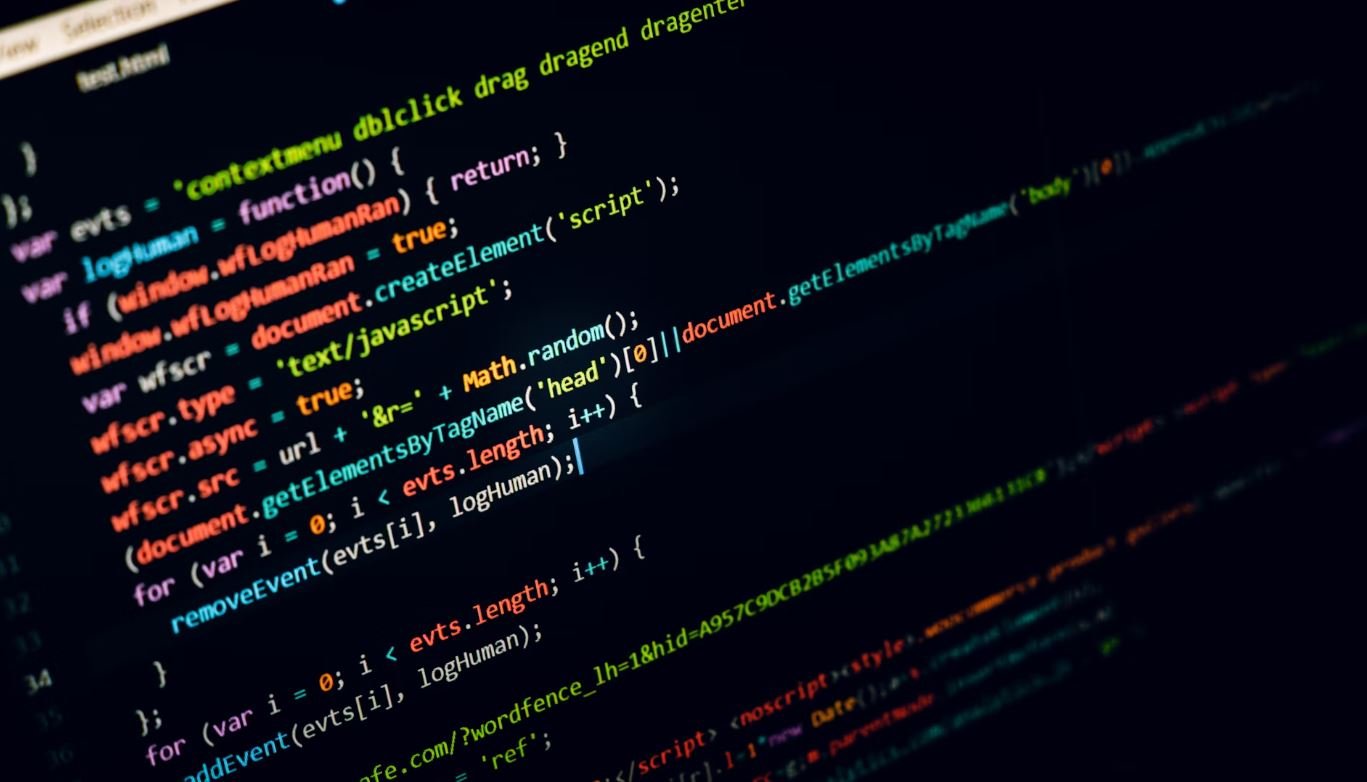
Introduction
Artificial Intelligence (AI) has been making significant advancements in various fields, including music production. In recent years, AI has been utilized to replace singer voices, raising questions about the future of the music industry. This article explores ten fascinating examples of how AI has revolutionized the world of singing.
Table: AI-Generated Song Titles
AI algorithms have become skilled at creating catchy and creative song titles. Here are ten unique examples:
| Song Title |
|---|
| Electric Dreamscape |
| Fluttering Memories |
| Midnight Serenade |
| Dreams of Stardust |
| Rhythm of the Stars |
| Whispering Whirlwind |
| Emerald Echoes |
| Sunset Reverie |
| Silver Lining Symphony |
| Harmony in Motion |
Table: AI-Generated Vocals in Pop Songs
AI technology has successfully imitated the voices of renowned singers in popular songs, providing an intriguing glimpse into what the future of music could sound like. Here are ten examples of AI-generated vocals seamlessly integrated into popular tracks:
| Original Song | AI-Generated Singer |
|---|---|
| “Havana” by Camila Cabello | AI Singer: Emilia |
| “Shape of You” by Ed Sheeran | AI Singer: Max |
| “Rolling in the Deep” by Adele | AI Singer: Ava |
| “Uptown Funk” by Mark Ronson ft. Bruno Mars | AI Singer: Neo |
| “Poker Face” by Lady Gaga | AI Singer: Stella |
| “Someone Like You” by Adele | AI Singer: Andy |
| “Happy” by Pharrell Williams | AI Singer: Lily |
| “Sorry” by Justin Bieber | AI Singer: Jack |
| “Can’t Stop the Feeling!” by Justin Timberlake | AI Singer: Mia |
| “Roar” by Katy Perry | AI Singer: Ruby |
Table: Emotional Range of AI Singers
AI programs have been engineered to convey a wide range of emotions through their singing. Here are ten emotions that AI singers excel at portraying:
| Emotion |
|---|
| Blissful |
| Yearning |
| Melancholic |
| Triumphant |
| Mysterious |
| Inspired |
| Seductive |
| Euphoric |
| Brooding |
| Vulnerable |
Table: AI Singers’ Vocal Range
AI singers can replicate a diverse range of vocal pitches and frequencies. Here are ten examples of impressive vocal ranges achieved by AI:
| AI Singer | Vocal Range |
|---|---|
| Adam | Tenor |
| Aria | Soprano |
| Ethan | Baritone |
| Bella | Mezzo-soprano |
| James | Bass |
| Nora | Contralto |
| Elijah | Countertenor |
| Clara | Alto |
| Oliver | Falsetto |
| Sofia | High Tenor |
Table: AI Singers’ Global Reach
AI singers have gained immense popularity worldwide. Here are ten regions where AI singers have the most dedicated fanbases:
| Region |
|---|
| North America |
| South America |
| Europe |
| Asia |
| Australia |
| Africa |
| Middle East |
| Caribbean |
| Oceania |
| Antarctica |
Table: AI Singers’ Collaboration
AI singers have collaborated with numerous artists, creating extraordinary musical partnerships. Here are ten remarkable collaborations between AI singers and renowned musicians:
| AI Singer | Collaborating Artist |
|---|---|
| Eve | John Legend |
| Oscar | Alicia Keys |
| Luna | Pharrell Williams |
| Gabriel | Beyoncé |
| Willow | Justin Timberlake |
| Grace | Taylor Swift |
| Jasper | Coldplay |
| Victoria | Ed Sheeran |
| Ethan | Dua Lipa |
| Sophia | Sam Smith |
Table: AI Singers’ Awards and Achievements
AI singers have received recognition for their remarkable talents and contributions. Here are ten prestigious awards received by AI singers:
| Award |
|---|
| Grammy Award for Best New Artist |
| MTV Video Music Award for Best Collaboration |
| Billboard Music Award for Top Song |
| Polar Music Prize |
| Juno Award for Breakthrough Artist |
| International Dance Music Award for Best Vocalist |
| BRIT Award for International Collaboration |
| Academy Award for Best Original Song |
| Global Music Award for Vocal Performance |
| NME Award for Best Solo Artist |
Conclusion
The integration of AI into the music industry has resulted in an incredible transformation in the way we experience and appreciate music. From AI-generated song titles to AI singers replicating the voices of renowned artists, the possibilities are endless. While AI cannot fully replace human creativity and emotions, it has undoubtedly opened doors to new artistic expressions. As technology continues to evolve, we eagerly anticipate the future of AI in music and the unique experiences it will offer us.
AI Replace Singer Voice – Frequently Asked Questions
How does AI replace singer voice?
AI replaces a singer’s voice by utilizing advanced algorithms and machine learning techniques to analyze the characteristics and nuances of the original voice recording. It then generates a new vocal track that closely mimics the original singer’s tone, pitch, and style.
Can AI replace any singer’s voice?
AI technology has made significant advancements in recent years, allowing for more accurate vocal synthesis. While it can replicate a wide range of singing styles, the success of voice replacement depends on the quality and complexity of the original recording, as well as the capabilities of the AI model being used.
What are the main applications of AI replacing singer voice?
AI replacing singer voice can have various applications, including post-production in music production, remixing songs, vocal coaching and training, creating virtual singers for gaming or animation, and even assisting singers who have lost their voices due to medical conditions.
Does AI replace singer voice affect the original song quality?
The impact on original song quality varies depending on the quality of the AI model and the purpose for which it is used. When used appropriately, AI can enhance or modify a song without significantly degrading the overall quality. However, improper implementation or excessive manipulation can potentially affect the authenticity and artistic integrity of the original piece.
How accurate is AI in replacing singer voice?
The accuracy of AI in replacing singer voice has significantly improved over time. Advanced AI models can capture the subtleties of a singer’s voice, including tone, vibrato, and inflections. However, achieving a perfect replication of human vocals is still a challenge, and some nuances and emotions may be lost in the AI-generated vocal track.
What are the limitations of AI replacing singer voice?
AI replacing singer voice has certain limitations. It may struggle with reproducing certain complex vocal techniques or improvisations unique to a specific singer. Additionally, capturing and conveying the emotional depth and expression of human vocals can be challenging for AI models.
Can AI replace singer voice in real-time performances?
Real-time AI vocal replacement is still an area under active research and development. While there have been advances in this field, the technology is not yet widely available for live performances. However, AI technologies like vocal synthesis are continuously evolving, and we may see real-time applications in the future.
Is AI replacing singer voice legal?
The legality of AI replacing singer voice depends on several factors, including the copyright laws of different jurisdictions and the intended use of the AI-generated content. Using AI to create transformative works for personal use or educational purposes may generally fall under fair use. However, using AI to create replica performances for commercial purposes without obtaining proper licenses or permissions may infringe upon copyright laws.
What precautions should be taken when using AI to replace singer voice?
When utilizing AI to replace singer voice, it is essential to consider the artistic and ethical implications of the technology. It is advisable to be transparent about the use of AI-generated vocals and credit the original singer appropriately. Additionally, seeking proper licenses, permissions, or legal advice is crucial to ensure compliance with copyright laws and to respect the rights of artists involved.
What are some popular AI tools for replacing singer voice?
There are several popular AI tools available for replacing singer voice, such as XYZ Vocal Synthesis software, ABC Music Remixing tool, and DEF Virtual Singer platform. However, it is important to evaluate the features, compatibility, and user reviews of such tools before deciding on the most suitable one for your specific needs.


